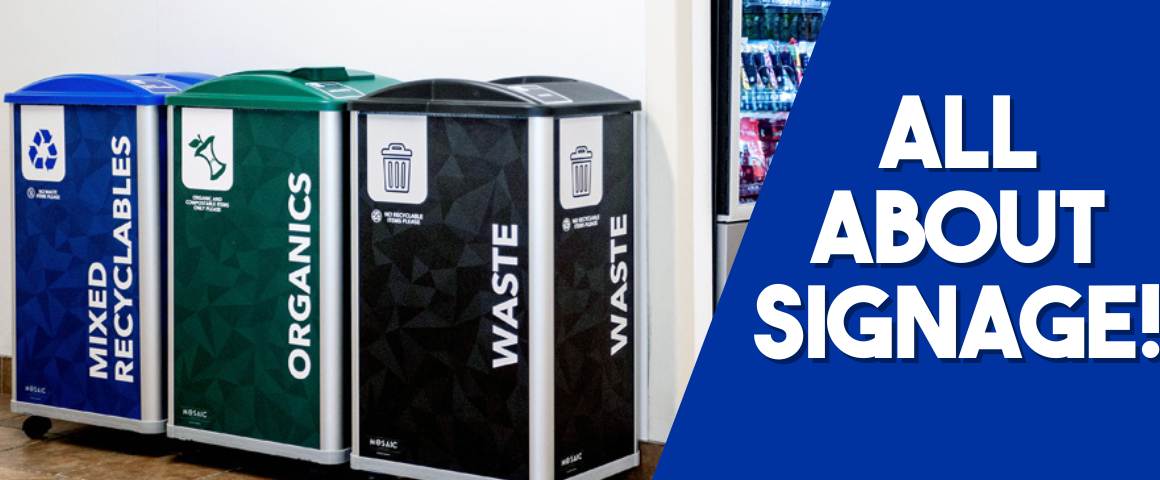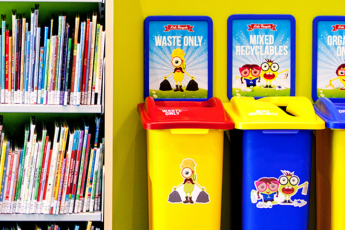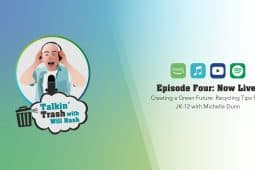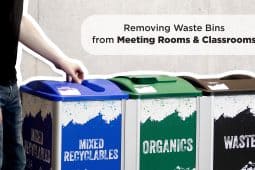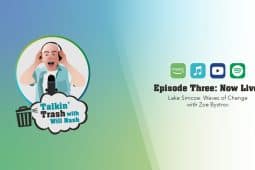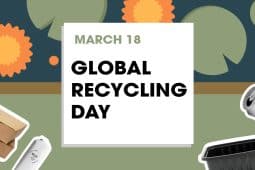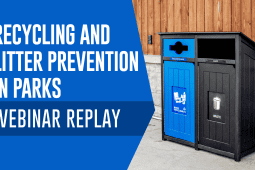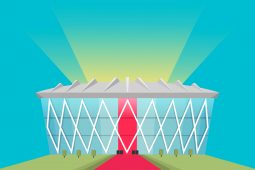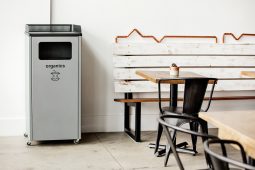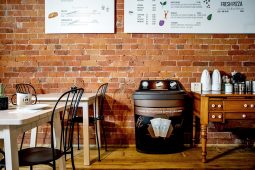You see them everywhere – recycling and waste containers, sometimes compostables or organics, each marked in their own way to help you know what goes where. But how useful can the signage on these bins really be?
Forms of Signage
There are many different forms of signage to help show how to properly dispose of your recycling and waste; the simplest, and most basic, being the wording on the label. For example, a recycling container can state “Recycling” and could include a list of items you will want to place in this bin (such as cans and bottles). However, this has proven to not be enough.
A study performed by the University of British Colombia showed us that sorting performance can improve directly by including words and pictures/icons on the label of the container! However, also including pictures of items on bin signage that should NOT be placed in each bin (for example, icons of coffee cups with a line through them on recycling bins if you want them placed in organic waste collection) can confuse users. Through this, we learned that it is best to only include pictures/icons of items that should be placed in each bin on any signage.
Additionally, it is important for signage to specifically mention anything unique to the location that may not have an obvious destination. For example, some municipalities may be able to compost paper towel, while some might process it through the recycling waste stream, or others might have it go to the landfill. Having paper towel explicitly listed/represented on the appropriate bin(s) near where paper towel is used will prevent ‘guessing’ and help users place the correct waste in the correct stream.
Optimizing Signage
Something as simple as the colour of the bin & signage can be very important. As centralized bins for waste sorting become more common, having a consistent colour-coding scheme can really assist in guiding individuals toward what items can go in which bin. For example, here in Canada, green is often associated with compost containers/organic waste, blue is often used for recycling, and black is often used for waste bins. Other colours may also be used when it comes to tough-to-decipher or unique items, such as using yellow or purple for batteries or e-waste. Of course, this concept can vary depending on one’s location, and it is best to understand your municipality’s approach first, as your waste diversion system & signage will be more successful if you use the colour associations most people in your area have already.
Now, aside from colour, how do we ensure we have the best, most effective signage for waste containers? Well, in 2021, our resident senior advisor Alec Cooley presented a 3-part blog series about this very topic! Alec’s focus, along with Keep America Beautiful’s alumnae Brenda Pulley, was to review the results of multiple studies to see what is best to have presented on waste container signs. These studies found that icons and/or images used in combination with words had a better sorting results than just verbiage. Including both a visual and written list of the items that go into each bin on signage did indeed reduce waste contamination and assist in more accurate sorting. This approach is also more accessible, especially in areas where multiple languages are used. Brenda & Alec also gathered from the studies that when icons/pictures are used on signs, individuals using the bins take a bit longer to determine which bin to deposit their waste into. If you wish to read their full study breakdown, you can hop right over to part 1 here.
Importance of Signage
Clear, relevant signage on waste containers is very important to get the best results when it comes to sorting between waste, recyclables, and organics. Ensuring the signage is visible, attention-grabbing, and legible are the best steps to achieve this goal. Above all else, educating and showing those around you which items go where can help you achieve the best results possible! And in the end, reducing stream contamination and helping your users properly sort their waste will reduce your costs and benefit the environment in the long run.
***
Are you looking to upgrade or improve your recycling program with visible and customizable signage? Busch Systems has recently released a new, innovative, and stylish container series called the Mosaic! The signage on this series spans the full size of the bin and is 100% customizable. You can find more information regarding the Mosaic here.
Sources
https://www.waste360.com/recycling/psychology-behind-recycling-behaviors-workplace
https://sustainability.yale.edu/take-action/managing-materials/best-practices-signage-and-bins
